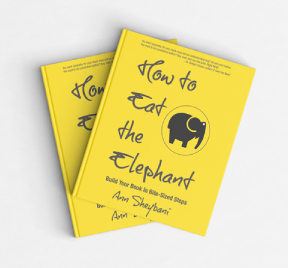Writing
One battlefield, two perspectives
November 13, 2024
During the early 90s, the Iranians would broadcast an English-language news program each weekday at 7 p.m. It was anchored by a hijab-wearing, dour American living in Tehran. Israel, which was referred to as Zionist-occupied Palestine, was a hot topic at the time because of a major upheaval in the West bank. (I know. Some things never change.)
Most of the news clips shown involved young Palestinian boys no older than 12. Israeli soldiers would pull them from a protesting crowd, drag them into back alleys, then break their little arms with rocks. The footage was so horrifying, I couldn’t imagine why they would show it when children were awake.
During the summer of this unrest, I went back to the States to visit my mother. One evening, I happened to flip on the news and, as one would expect, there was more footage of the conflict. The setting was identical, the two sets of characters battling each other, but this time it was young Israeli soldiers who were fending off blows and bleeding profusely. This camera angle focused on the out-of-control, rabid Palestinians throwing stones at terrified eighteen-year-olds in military uniform.
This was the first time I realized that what we see in the news depends entirely on the ruling government. I had no doubt that all these things were happening in the West bank, that cameras were capturing both realities, but what the citizens of a country see, well, that’s curated for effect. Propaganda is a thing.
I realize that this must have been 1992, because that same summer I gave birth to my son. I’d come, not just to see my mother, but to avail myself of the American medical system, of which I am a fan. (You gain an appreciation when you’ve seen some of the alternatives.)
My obstetrician, a no-nonsense woman with enormous knuckles, was morbidly curious about my experience in Iran. “It must bother you to be living in a country that oppresses women. What do you do? What do you say? I’d be fighting for their rights!”
I found the question surprising.
First, I couldn’t fathom why I would feel compelled to do or say anything about a culture that was not my own, particularly one that had had their fill of foreign intrigue. Delusional or not, I considered myself a guest who could either lump it or leave.
Second, I was someone who tended to focus on my own household, rather than the outside world, because that’s where my battles were historically fought.
Third, I couldn’t help thinking of an old Iranian woman I’d met in a waiting room, who’d asked me if I were relieved to no longer be living in the grips of the Great Satan, aka, America. She assumed I could only feel safer as a woman in Iran. (I didn’t; in case you’re wondering.)
That old Iranian woman was exactly the kind of woman whose rights my obstetrician was worried about. Someone who was perfectly happy with the ones she had.
Why am I telling you this story? Well, it’s time for me to talk about the election, express how I feel about it.
Daring, I know.
To be clear, I stood in line for two hours to vote for Harris. I’m the sort of person that refuses to wait in a long line, unless I’m required to do so for important shit, like a heart transplant. I do not like Trump, he scares me because I’m not into authoritarians. I know what that looks like from personal experience and because I’ve read an awful lot of history books. Morally, the guy is a dumpster fire. That matters.
And… this guy was democratically elected. More than half of our citizens believed he would take the country in a direction that would benefit their families. That he would right some wrongs. And statistically, it seems improbable that 50+% of the American people are dyed-in-the-wool racist, misogynistic, morons. In fact, I know some really bright, conscientious people who have admitted, under cover of night, that they were big fans.
Many of my friends are bereft. That’s the best word I can come up with. They feel called to do something, although they’re not quite sure what. Sitting still and allowing democracy to die, which is exactly what they see coming, feels irresponsible. To do so puts one in the same category as the German citizens who stood idly by as Hitler exterminated the Jews. Or the French citizens cowed by the Nazi-installed Vichy government, as opposed to the resistance force that risked their lives in the name of what is right. And you know what? Maybe they’re right. I don’t know. Yet.
Back to the same scene, multiple perspective thing.
Like that old Iranian woman in the waiting room, Trump supporters see our country differently than I do. They clearly come from somewhere I do not. I’m an east coast elite with a bunch of college degrees and it matters not one whit if I pay $7/gallon for gas, or $1.99. I’m fine either way. I’m not wondering how to feed my family or pay my rent. The flat-world economy has been very, very good to me. I don’t need protection from a bully because I have a safety net and I know how to play this game.
From what I’ve gathered, those who voted for Trump see themselves as French Revolutionaries taking down the aristocracy. They no longer want to be told to eat cake when there is no bread. They’d like to see their jobs come back from overseas, not just for their own sake, but for their disenfranchised kids. And they’re more than willing to fight for that.
I can guarantee you that like “us”, they’re listening to leaders who curate content for effect. They see and hear one thing; we see and hear another.
So, where does that leave us? What do I plan to do in this angry, chaotic time? I don’t know. Demonizing the other side doesn’t seem prudent. But I do know that I’m not going to assume that those who voted Trump into office are my mortal enemies. I’m going to assume that their camera lens sees something different than mine does. I’m going to try to stay curious. And to love all of those who are hurting, even those who don’t want it.


